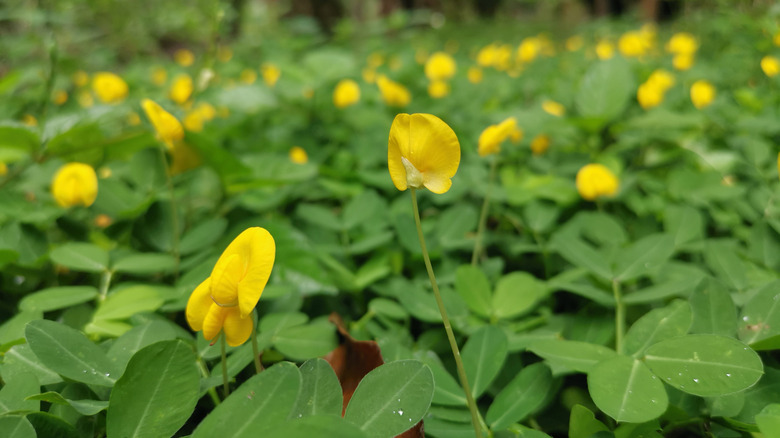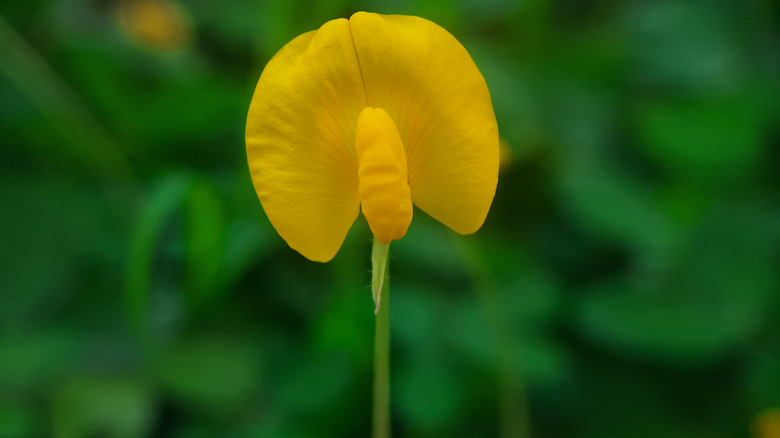Groundcover Peanut Varieties You Can Grow As A Grass Alternative
Mowing is one of those chores that you either love or hate. If you're the latter, growing a perennial peanut groundcover is one of the best low-maintenance ways to create an eye-catching front lawn without grass. The lush foliage and dainty yellow blooms will not only add more color and texture to your yard, but the flowers will also attract beneficial pollinators. With these beautiful grass alternatives, you can leave the lawnmower in the garage and spend less time battling weeds. Depending on the variety, they spread through either rhizomes or stolons, forming dense mats that make it more challenging for weeds to compete. Additionally, these characteristics also make these plants perfect for areas prone to erosion, as they help prevent wind and rain from washing the soil away. These impressive groundcovers can also fix nitrogen in the soil naturally, reducing the need for fertilizers.
The two main types of peanut groundcover varieties are pintoi peanut (Arachis pintoi) and rhizoma peanut (Arachis glabrata). While both feature attractive foliage, the main differences are that rhizoma leaflets are more pointed and tend to be a darker shade of green. Native to South America, these plants are best suited for warm climates, with pintoi peanut being hardy in zones 9-11 and rhizoma thriving in zones 8-11. Although they can tolerate some dappled shade, they grow a fuller canopy when grown in full sun. Once established, they're incredibly drought-tolerant, so you'll rarely need to break out the hose.
Choosing the perfect perennial peanut for your yard
No matter what lawn goals you have, you'll find several cultivars of this eco-friendly grass alternative to choose from, though the rhizoma peanut stands out with the most varieties available. 'Florigraze' is a popular option often used for grazing, but it also works well as a fast-spreading ground cover, especially in yards with heavier soils. On the other hand, 'Arbrook' has superior drought resistance and larger rhizomes, making it more effective at suppressing weeds. However, if its upright growth habit and the larger size aren't what you're looking for, then 'Chico' may be the right fit, as this low-growing variety won't extend past 6 inches tall. That said, all options offer the benefit of erosion control and adding more nitrogen to the soil.
While most rhizoma peanut cultivars can grow up to 18 inches tall, pintoi peanut plants tend to be more compact, growing up to about 8 inches in height. Rather than spreading through underground rhizomes, these varieties spread via seeds or stolons, which typically grow above the ground. Once established, they develop deep roots that help to choke out weeds and stabilize the soil. 'Amarillo' is one of the most popular pintoi peanut cultivars because of its high seed production and availability, making it a great option if you have a large area to cover. 'Golden Glory' is another peanut groundcover that thrives even in the harshest sun, and produces vibrant yellow blooms in spring, summer, and fall.

